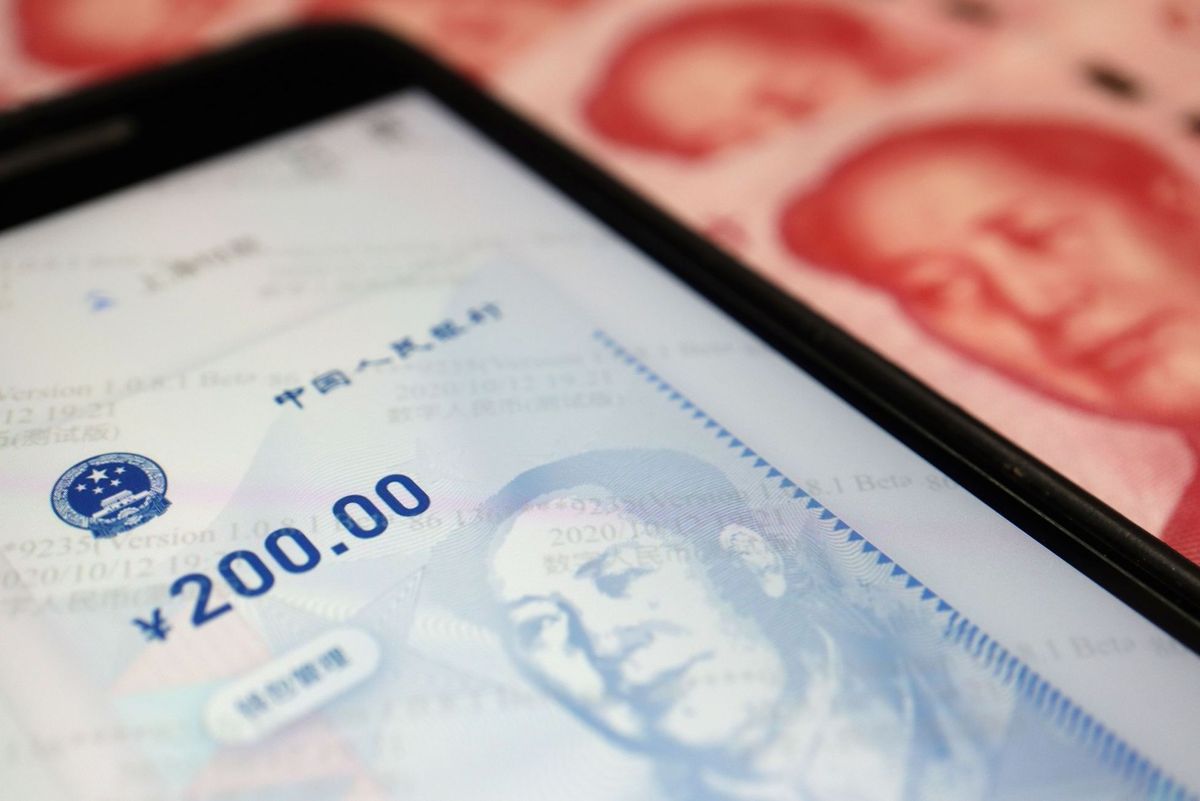China’s Lunar New Year experiment with digital currency

A few minutes every morning is all you need.
Stay up to date on the world's Headlines and Human Stories. It's fun, it's factual, it's fluff-free.
For many Chinese, the payment option of choice is through apps such as Alipay and WeChat Pay. These apps and the companies that own them have revolutionized China’s financial industry. However, Beijing may catch up to the market soon.
China may soon lead the world in financial technology. The People’s Republic is already the unofficial leader in fintech transactions, as cash has become obsolete for the most part and credit cards never became truly popular.
For many Chinese, the payment option of choice is through apps such as Alipay and WeChat Pay. These apps and the companies that own them have revolutionized China’s financial industry. However, Beijing may catch up to the market soon.
This form of financial transaction is still unfamiliar to many Americans who are accustomed to paying with cash or credit/debit card. Americans may think of WeChat Pay and Alipay like Apple Pay. When it comes time to make a payment, the vendor scans a code on the customer’s phone. Alipay and WeChat Pay users can do everything from purchasing a cup of coffee to taking out loans while using their app.
Alipay and WeChat pay are owned by the two tech giants of China, Alibaba and Tencent. WeChat is the dominant social media platform in the country and its entrance into the financial industry came after Alipay, a subsidiary of Alibaba’s Ant Group, which recently found itself in hot water after Alibaba’s founder, Jack Ma, criticized China’s government financial sector of having a “pawn shop mentality” and being reluctant to change.
While Jack Ma was reprimanded for these comments, Beijing may have taken his criticism to heart.
For the Lunar New Year, the Chinese government experimented with digital currency by gifting 200 yuan (nearly US$30) to 50,000 people. The 10 million yuan experiment was limited to the period from February 10 to 17 and participants were required to spend the digital yuan at designated locations or on e-commerce websites.
This experiment is not the first one. In 2020, the cities of Shenzhen and Suzhou also experimented with digital currency. The digital yuan is not like other digital currencies such as bitcoin as the digital yuan is regulated by the Chinese People’s Bank, the host of the Lunar New Year experiment in Beijing.
If Beijing were to commit to currency digitization, it would be able to cut out middlemen such as WeChat Pay and Alipay, who profit when they are used in transactions. It will also modernize the currency in a country where the financial system is becoming quickly outdated due to the revolutionary advancements being introduced in the market.
However, the digital yuan has its critics, with skeptics claiming that the digitization of the yuan and the cutting out of middleman companies like WeChat Pay and Alipay will allow Beijing greater access to the financial information of Chinese citizens and allocate more control to the government.
Some fear that those with a low “social credit score” or who participate in activities frowned upon by the government could face financial repercussions. While much of the world is involved in digital transactions, much of that information is not immediately accessible to government authorities. For Chinese citizens, that could change if the yuan digitizes.
There are also geopolitical repercussions to the digital yuan. Sir Mark Lyall Grant, a former United Kingdom national security adviser, warned that China could “ability to bypass the world’s traditional banking systems and then challenge the dollar’s pre-eminent position.”
A report from the Center for New American Security, a think tank based in the United States, says that the digital yuan “will likely enable the Chinese Communist Party (CCP) to strengthen its digital authoritarianism domestically and export its influence and standard-setting abroad.”
That report also suggests that by “eliminating some of the previous constraints on government data collection of private citizens’ transactions” the digital yuan “represents a significant risk to the long-held standards of financial privacy upheld in free societies.”
Despite reservations at home and abroad, Beijing is expanding the digital currency pilot program. Private banks are now joining the research program, including the principal competitors of the digital yuan, Alibaba and WeChat Pay.
The Ant Group-backed MYBank announced its plans to “advance the trial pursuant to the overall arrangement of the People’s Bank of China.” WeBank, which is backed by Tencent, the owner of WeChat and WePay, also recently announced its participation in the program.
If the trials are successful, Beijing could develop the digital yuan for mass use, making China the first major country to employ a large-scale centralized digital currency.
Have a tip or story? Get in touch with our reporters at tips@themilsource.com




Comments ()